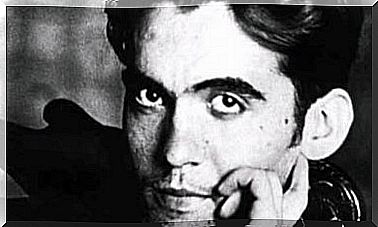Paralysis Of Perfection: When Fear Of Failure Paralyzes Us

The paralysis of perfection defines that state in which you want to reach 200% of your potential and what you achieve is to stay at 0%. Salvador Dalí has said with great success that if there is one thing we should put out of our minds it is the idea of achieving something perfect, because that status is never achieved. However, the brain cannot help but feed this focus and this unhealthy need.
The history of cinema tells that there was no director more perfectionist and obsessed with details than David Lean. Thanks to him we have wonderful productions such as Lawrence of Arabia, The Bridge on the River Kwai and Doctor Zhivago . His fixation on taking care of each shot was exasperating, to the point that it exhausted much of the film crew with its demands and quirks.
Well-known is his wish that a snowy field with poppies would appear in a scene by Dr. Zhivago . The conjunction, by itself, was impossible to materialize, which caused a notable delay in filming, as well as economic losses. His biographers explain that this desire to achieve perfection in each film brought him periods of depression and despair, as well as many discontents with his professional colleagues.
American writer Pearl S. Buck said that the desire for perfection makes some people totally unbearable. To this we must add something even more important: emotional suffering and psychological exhaustion. Let’s analyze the matter.

What is the paralysis of perfection?
Science tells us that young people are more perfectionists than ever. Furthermore, surveys such as those carried out at the University of Western Ontario (Canada), for example, show that perfectionism has grown substantially since 1990. The millennial generation struggles against this dimension much more than previous generations.
All of this comes at a high cost, which often results in anxiety disorders, stress, depression and even eating disorders. The most common phenomenon in these situations is, without a doubt, the paralysis of perfection. Let’s understand what this is about.
The paralysis of perfection and the fear of failure
The paralysis of perfection defines the immobilizing fear of failure and of not meeting our expectations and others’ expectations of us. When we are asked for a project, work or the contribution of an innovative idea, it is very common to say to ourselves: “I will do my best, I will offer you something extraordinary”.
However, what happens after this adopted goal is that stress paralyzes us. And when stress and anxiety hijack the mind, creativity doesn’t surface. Because our psychological universe does not function in states of high emotionality. Fear of failure blocks us and innovation and creative ideas do not germinate in this context.
What causes this need to reach perfection?
We know that behind the paralysis of perfection lies the fear of failure as well as disappointment. Now why do we feed this fear? Why, instead of allowing ourselves to enjoy the performance process, are we overwhelmed by anguish?
There are several hypotheses that explain this situation. Are the following:
- Much of this quest for perfection is mediated by upbringing and education. There are many parents who encourage in their children the need to be the best, to achieve excellence in everything they do. This eventually leads them to develop unhealthy demands of their own.
- On the other hand, it is necessary to talk about factors such as lack of self-confidence and even task overload. Sometimes we have a considerable backlog of work and a lot of pressure on it. If you also add the need to do certain things perfectly, anxiety freezes us.
- Likewise, there is another recurring factor in the field of organizations. There are times when a leader, for example, is challenged to make a decision regarding a specific problem. It analyzes thousands of pieces of information and evaluates dozens of strategies. However, having to evaluate multiple data at the same time causes the phenomenon known as analytics blocking.

How to deal with blocking for perfection?
Blocked, stressed, scared, nervous and even exhausted. Paralysis due to perfection subjects us to a disabling, unproductive, and distressing psychological state. It doesn’t matter how exceptional the person is. Your skills and knowledge are unimportant if you are plunged into that mental fog orchestrated by fear and anxiety.
What can we do under these circumstances? Let’s analyze.
3 Strategies to Reduce Paralysis to Perfection
The first strategy is simple: relax and expand your focus of attention. One mistake that perfection-obsessed people make is looking at the details, attending to too specific aspects to the point of losing perspective.
Sometimes, when you impose a certain distance, you can see more things. Sometimes, when the mind rests, the best ideas arise. Disconnecting to connect with greater intensity later is the best key.
Another basic and essential resource is to increase self-confidence. Self-demanding makes us dislike our performance. It is true that ambition can work in our favor, but we must ensure that the result of this attempt at improvement does not end up harming our self-esteem. Treating each other kindly and trusting our own abilities is critical.
Finally, it is necessary to reduce ruminant thinking. Obsessive and negative ideas and the mind that does not stop turning things without direction or meaning are the engine of the paralysis of perfection. Let’s avoid getting into this exhausting rumination cycle. Let’s try, as far as possible, to reduce the greatest enemy of performance and well-being: the need to be perfect.









